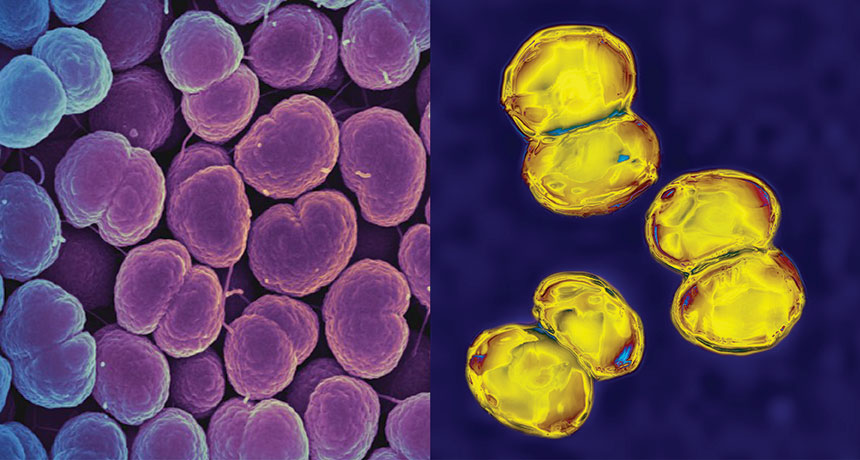The fight against gonorrhea gets a potential new weapon: a vaccine
Shot that curbs meningitis also appears to reduce infections of the sexually transmitted disease

TWO-FOR-ONE Gonorrhea culprit Neisseria gonorrhoeae (left, in false color) is genetically similar to bacteria that can cause meningitis, Neisseria meningitidis (right, in false color). That close relationship might explain why a vaccine that curbed meningitis in New Zealand also seemed to reduce gonorrhea infections.
From left: NIAID/Flickr (CC BY 2.0); James Cavallini/Science Source







